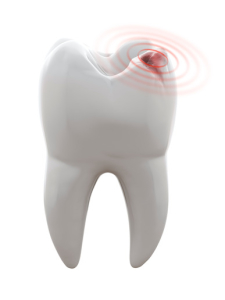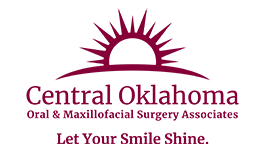25 Aug Could your toothache be something more serious?
 Many folks mistakenly believe that a toothache is just a sign of a minor cavity. While that may be true some of the time, a toothache can be a signal of a much bigger problem. Most cases of tooth decay are asymptomatic; this means that the early stages of a cavity may not produce any noticeable symptoms. If a patient experiences pain biting down on food or dull, nagging aches, he or she may have a deeply infected tooth or abscess that may require oral surgery. Sometimes, badly damaged teeth cannot be saved and retaining failing teeth can put your oral health at great risk. If a tooth cannot be saved with a restoration or root canal therapy, a tooth extraction may be required. Our oral surgeons offer a number of oral health services including surgical tooth removal.
Many folks mistakenly believe that a toothache is just a sign of a minor cavity. While that may be true some of the time, a toothache can be a signal of a much bigger problem. Most cases of tooth decay are asymptomatic; this means that the early stages of a cavity may not produce any noticeable symptoms. If a patient experiences pain biting down on food or dull, nagging aches, he or she may have a deeply infected tooth or abscess that may require oral surgery. Sometimes, badly damaged teeth cannot be saved and retaining failing teeth can put your oral health at great risk. If a tooth cannot be saved with a restoration or root canal therapy, a tooth extraction may be required. Our oral surgeons offer a number of oral health services including surgical tooth removal.
Why would a tooth need extraction?
Sometimes, a restoration like a filling or endodontic therapy such as root canal treatment can prevent an infected or damaged tooth from affecting one’s overall oral health. When a tooth cannot be saved, however, an extraction is necessary to prevent painful and systemic infections such as abscesses. Once they are broken or infected, teeth cannot heal on their own. Without professional treatment, the problem will only worsen. If an oral surgeon determines that a tooth should be removed, it is because it is necessary.
How do I know if my tooth cannot be saved?
Most of the time, general dentists refer patients to our practice for extractions. If your dentist or endodontist cannot save your tooth with restorative procedures, they will likely recommend that you receive care under the supervision of an oral and maxillofacial surgeon.
Will I be comfortable during my procedure?
Our team places patient comfort at a high priority. During treatment, we administer the necessary analgesic and sedative medication to ensure that our guests receive high quality care without sacrificing their comfort.
To schedule an appointment with our caring and experienced staff, call Central Oklahoma Oral & Maxillofacial Surgery Associates at 405-624-1300 today.
